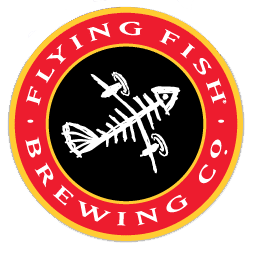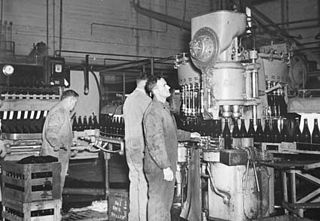
Craft beer is a beer that has been made by craft breweries. They produce smaller amounts of beer, typically less than large breweries, and are often independently owned. Such breweries are generally perceived and marketed as having an emphasis on enthusiasm, new flavours, and varied brewing techniques.

The Redhook Ale Brewery is a beer brewery operating out of Seattle, Washington, United States. It was founded in Seattle in 1981 by Paul Shipman and Gordon Bowker, and is currently owned by Tilray. Its flagship brewery, the Redhook Brewlab, is located in the Pike Motorworks Building in Seattle's Capitol Hill neighborhood. Redhook also operated a location in Portsmouth, New Hampshire, from the 1990s until June 2018, when it was rebranded under Cisco Brewers from Nantucket, Massachusetts.

Sierra Nevada Brewing Co. was established in 1979 by homebrewers Ken Grossman and Paul Camusi in Chico, California, United States. The brewery produced 786,000 US bbl (922,000 hl) in 2010, and as of 2016, Sierra Nevada Brewing is the seventh-largest brewing company in the United States and is the third largest privately owned brewery in the United States.
Thomas Kemper was a brewer of root beer, ginger ale, and other craft sodas under the Thomas Kemper Soda Co. label. Formerly owned by Pyramid Breweries, Inc., it was sold in 2007 to Adventure Funds of Portland, Oregon, which is running the company under the Kemper Co. name.

Flying Fish Brewing Company is a craft brewery based in Somerdale, New Jersey. Founded in 1995 by Gene Muller in Cherry Hill, it moved to its Somerdale location in 2012. It is today the largest craft brewery in New Jersey.

Beer arrived in Australia at the beginning of British colonisation. In 2004 Australia was ranked fourth internationally in per capita beer consumption, at around 110 litres per year; although, the nation ranked considerably lower in a World Health Organization report of alcohol consumption per capita of 12.2 litres. Lager is by far the most popular type of beer consumed in Australia.

Beer in the Netherlands mostly comprises pale lagers like Heineken and Grolsch. Heineken is the world's second-largest brewer.

Beer in Asia began when beer was produced in Sumer, Mesopotamia circa 6000 years ago. It was introduced by Europeans in the 19th century, with modern breweries established in British India, the Dutch East Indies, China, and Japan. Asia's first modern brewery was established in 1830 in India entirely using European brewing technology.

A brewery or brewing company is a business that makes and sells beer. The place at which beer is commercially made is either called a brewery or a beerhouse, where distinct sets of brewing equipment are called plant. The commercial brewing of beer has taken place since at least 2500 BC; in ancient Mesopotamia, brewers derived social sanction and divine protection from the goddess Ninkasi. Brewing was initially a cottage industry, with production taking place at home; by the ninth century, monasteries and farms would produce beer on a larger scale, selling the excess; and by the eleventh and twelfth centuries larger, dedicated breweries with eight to ten workers were being built.

Breweries in New Hampshire produce a wide range of beers in different styles that are marketed locally, regionally, and nationally. Brewing companies vary widely in the volume and variety of beer produced, from small nanobreweries and microbreweries to massive multinational conglomerate macrobreweries.

Mikkeller is a craft brewery founded in 2006 in Copenhagen, Denmark that was originally based on the so-called "cuckoo", "phantom" or "gypsy" ethos; that is, the company does not operate an official brewery and, instead pays a brewery in Belgium to produce their beer. The company now operates several brewpubs, such as Warpigs in Copenhagen and Mikkeller Brewpub London. Mikkeller was founded by two home brewers: Mikkel Bjergsø, a high school teacher, and journalist Kristian Klarup Keller. Both sought to introduce their home-brewed beer to the public and to "challenge beer friends with intense new tastes", drawing inspiration from the American breweries that "aren't afraid to play and break all the rules".
Lighthouse Brewing Company is a brewery in Esquimalt, British Columbia, Canada.
Flounder Brewing Company is a microbrewery in Hillsborough in Somerset County, New Jersey. Started by Jeremy Lees as a homebrewing hobby, it grew to encompass other members of the family including his brothers, Daniel and Michael, and his cousin William. The brewery opened to the public in October 2013, and was first sold to the public at the Fox and Hound Tavern in Lebanon, New Jersey. It was New Jersey's 12th Limited Brewery license and one of the first nano scale breweries in New Jersey, producing an estimated 50 barrels of beer per year.

Empire Brewing Company was a Syracuse, New York-based microbrewery and restaurant founded by owner, David Katleski, in 1994. The company was known for their craft brews and their locally sourced, seasonal food menus. In 2013, Empire Brewing Company was featured on an episode of Diners, Drive-ins, and Dives. Empire's beers won nine medals at the Great American Beer Festival and two World Beer Cups.

Hemp beer is a form of beer infused with elements of the cannabis plant. Hemp beer is not brewed from hemp directly, but hemp products such as seeds are a later flavoring addition.












